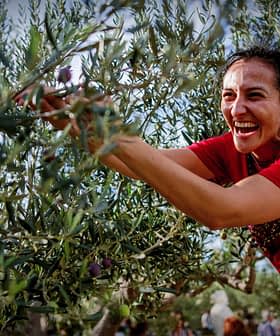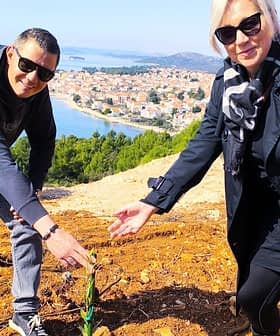How to Travel Through Customs With Olive Oil: A Survival Guide
At times, you may feel like James Bond on a top secret mission: to successfully transport the crown jewel of the Mediterranean diet. Here are a few tips to ensure the safe arrival of that Liquid Gold.
Transporting olive oil through customs can be a challenge, but with proper preparation and knowledge of customs regulations, it is possible to safely bring it back from abroad for personal use. It is important to review the customs regulations of your destination country, carefully pack the olive oil, declare it with customs, and be honest and prepared when passing through airport security and customs checks.
Traveling through customs is difficult enough. Why compound the effort to squeeze a massive rolling suitcase through a security belt with the lingering possibility of precious cargo getting banged up, tumbled open or, even worse, confiscated?
At times, you may feel like James Bond on a top-secret mission: to successfully transport the crown jewel of the Mediterranean diet, olive oil. Here are a few tips to ensure the safe arrival of that Liquid Gold.
While Traveling
Keep your receipts. This will help later when providing a detailed account of purchases for customs of all goods purchased abroad. Furthermore, proof of purchase from a vendor will support your claim that your use of olive oil is for personal use only.
Before the Airport
Each country has its own rules upon re-entry, so it is helpful to review the customs website of your final destination before embarking on your journey home.
- United States: “Condiments, vinegars, oils, packaged spices, honey, coffee and tea are admissible.”
- United Kingdom: “You can bring any fruit, vegetables, meat, dairy or other animal products (eg fish, eggs and honey) into the UK if you’re traveling from a country within the EU.”
Some countries in the EU designate admissible items upon entry based on EU classification. Review this list of countries within the EU to determine whether you are entering a third-party country or from within the EU.
On each customs website, there is a list of prohibited items, including things not to bring into a foreign country. As a rule of thumb, the top items mentioned on these lists almost always include agriculture, wildlife, medical specimens, illegal narcotics and firearms.
Since olive oil is classified as a condiment derived from a vegetable, it does not fall into any of these major inadmissible categories; therefore, it is a safe assumption that the transportation of olive oil for personal and private consumption is accepted in your country. A cursory look at seven customs websites found not one that mentioned forbidding the personal import of olive oil.
Carefully packing olive oil to secure the liquid is essential, as changes in altitude and temperature shifts may affect the condition of the bottle, tin or box. Some travelers suggest securing bottles with bubble wrap. Others highly suggest adding an additional protective layer by wrapping each bottle in a plastic bag to prevent clothing articles from haphazard spills during the flight. Protective plastic bags are offered at some Greek airports.
At the Airport
After declaring your item(s) with customs in the most detailed manner possible, secure them as carefully as possible. Forms should be available at your departure city and may even be found online.
Pack your olive oils in your checked bags, as security regulations in most places strictly limit the volume of liquid you can carry on.
On Arrival
After surviving the twists and turns of airport geography and passing through customs, you are ready to sashay away to your flight’s baggage claim carousel, where your prizedextra virgin olive oil treats await. As you head toward the exit in many airports (Boston, for example), customs officers might conduct another check of your luggage. Have your paperwork handy, and don’t fib about what you have in your luggage. Honesty is always the best policy, and customs officers are not known, understandably, for their sense of humor.
Share this article







